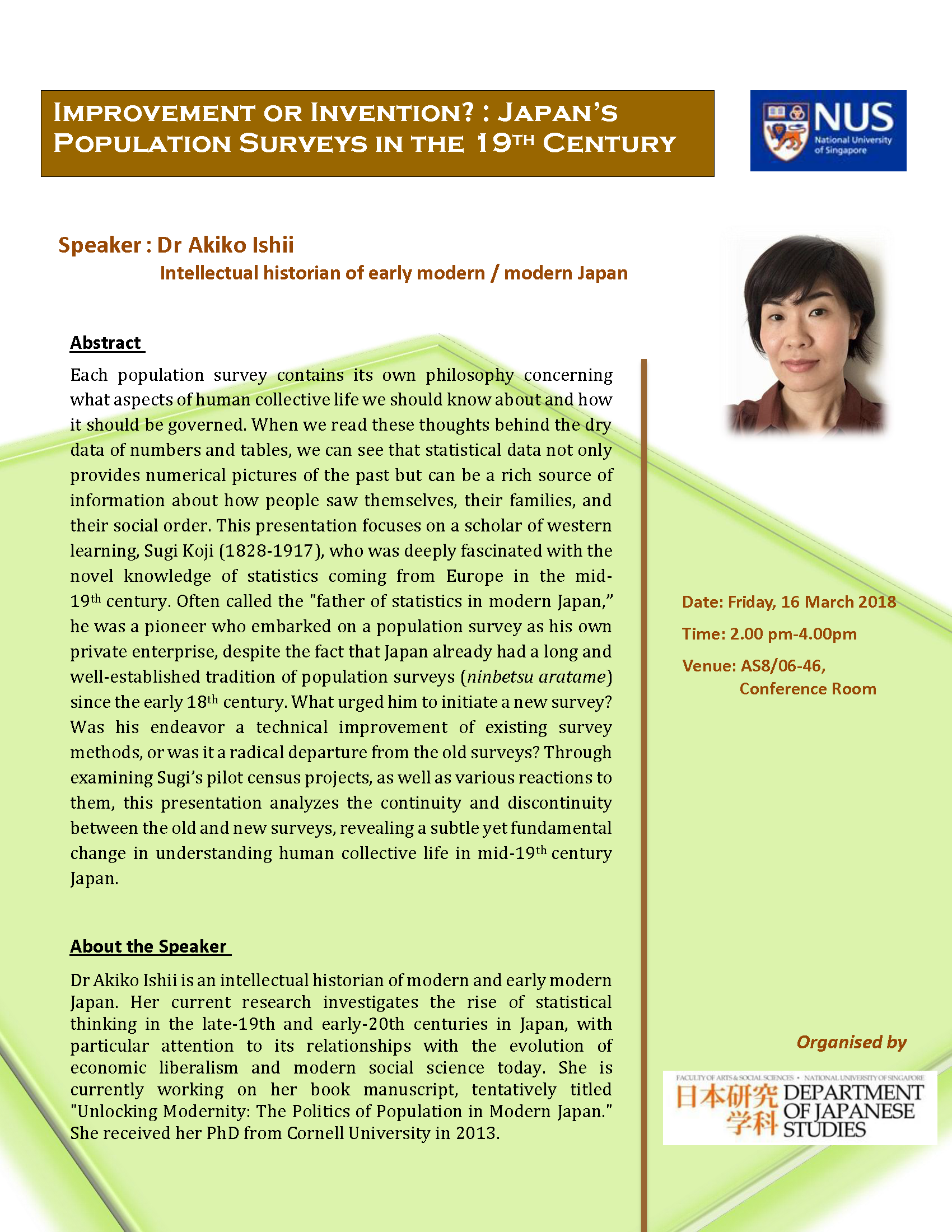Improvement or Invention?: Japan’s Population Surveys in the 19th Century
Abstract
Each population survey contains its own philosophy concerning what aspects of human collective life we should know about and how it should be governed. When we read these thoughts behind the dry data of numbers and tables, we can see that statistical data not only provides numerical pictures of the past but can be a rich source of information about how people saw themselves, their families, and their social order. This presentation focuses on a scholar of western learning, Sugi Koji (1828-1917), who was deeply fascinated with the novel knowledge of statistics coming from Europe in the mid19th century. Often called the "father of statistics in modern Japan,” he was a pioneer who embarked on a population survey as his own private enterprise, despite the fact that Japan already had a long and well-established tradition of population surveys (ninbetsu aratame) since the early 18th century. What urged him to initiate a new survey? Was his endeavor a technical improvement of existing survey methods, or was it a radical departure from the old surveys? Through examining Sugi’s pilot census projects, as well as various reactions to them, this presentation analyzes the continuity and discontinuity between the old and new surveys, revealing a subtle yet fundamental change in understanding human collective life in mid-19th century Japan.
About the Speaker
Dr Akiko Ishii is an intellectual historian of modern and early modern Japan. Her current research investigates the rise of statistical thinking in the late-19th and early-20th centuries in Japan, with particular attention to its relationships with the evolution of economic liberalism and modern social science today. She is currently working on her book manuscript, tentatively titled "Unlocking Modernity: The Politics of Population in Modern Japan." She received her PhD from Cornell University in 2013.

Date
Time
Venue
Conference Room

